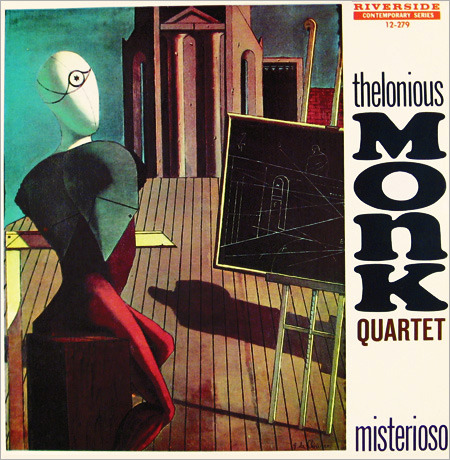
It’s 60 years old, another of the great jazz record labels to make a diamond anniversary although the present lives in the past, so is the way with the great days of the record business and Riverside is no longer a force. But what do you think of when you think of Riverside records? Well, with me there are three names carved in stone: Thelonious Monk, Bill Evans, and Orrin Keepnews. Ask another person and they’d add Abbey Lincoln or Randy Weston. The first couple of names in my list of course two of the label’s greatest artists, icons of the music both. Both made classic recordings for Riverside. Keepnews, less familiar but nonetheless one of the most significant jazz producers in history, was one of its most ubiquitous producers and a label founder with Bill Grauer (who died in 1963). But Riverside despite its association with bebop and modern jazz was a traditional jazz label at the outset, and look at some of its early recordings in the 1950s and you’ll see why. Its 10-inch 1000 series features such titles as King Oliver Plays the Blues, Louis Armstrong with King Oliver’s Creole Jazz Band and much more besides stretching beyond trad to mainstream with such figures as Buck Clayton and Coleman Hawkins on the label’s roster.

Riverside label reels and mic symbol
The label also issued early Chicago sides Grauer had bought from Gennett, a label that went out of business in the 1930s, and even though this year marks 60 years of Riverside and the label no longer exists independently there were periods of bankruptcy, long stretches of inactivity and then a rebranding under the banner Original Jazz Classics when Fantasy bought the Riverside rights in 1972. All that notwithstanding there’s still a thrill looking at a slab of Riverside vinyl or its subsidiary Jazzland in a record shop or reading the sleeve notes of a CD reissue even in that neat and more functional OJC livery. Riverside might not exhibit the widespread appeal of Blue Note, Atlantic or even Prestige, but it remains one of the great jazz labels and 60 years is an opportunity to recall once more the fascinating heritage of a pioneering record company, a label that lived and breathed jazz and contributed to its future like few others.